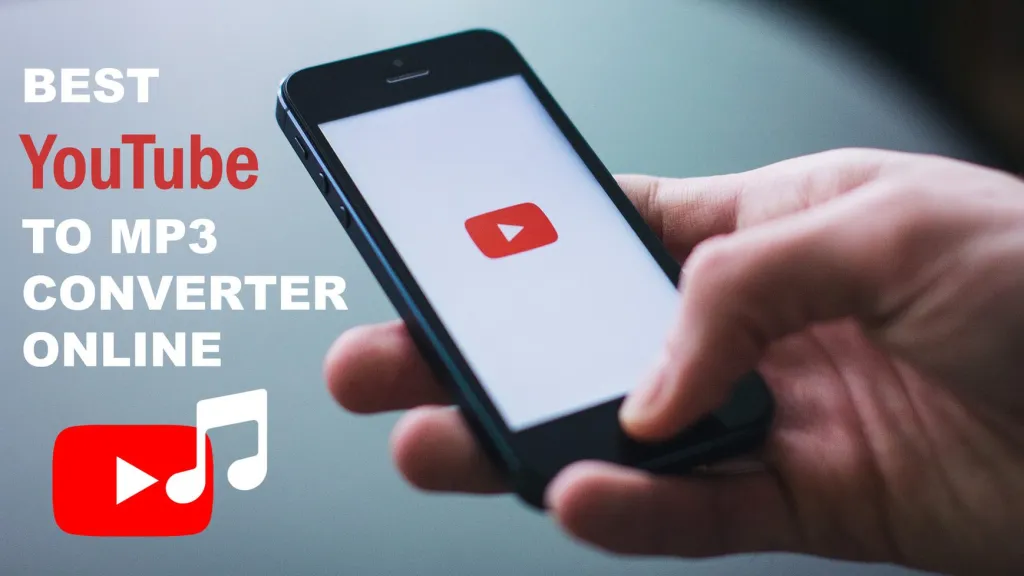Unlocking the Melody: The Controversy and Convenience of YouTube to MP3 Conversion
YouTube is the largest online video platform, with an unending array of videos to suit every interest. The platform’s Terms of Service prohibit downloading videos without permission. However, one controversial practice is converting YouTube videos into MP3 format. The process lets users extract audio from video files, allowing them to listen to the music offline. This article will examine the complexities of YouTube MP3 conversion. We’ll also look at the benefits and ethical issues it brings up.
YouTube MP3 Converter: Convenience and Convert YouTube videos to MP3s.
Converting YouTube videos into MP3 is primarily a convenience. Users love the option to curate their playlists of songs, speeches, or podcasts. It allows offline listening and is a great solution for those who don’t always have a reliable internet connection. youtube to mp3 is a user-friendly and versatile solution for road trips, workouts, or just enjoying music.
The Legal Consequences
The practice of YouTube MP3 conversion has not been without controversy. YouTube’s Terms of Service explicitly forbid the downloading of unauthorized content. These users may be in violation and risk having their YouTube account suspended or terminated. Although the law surrounding YouTube MP3 conversion can be murky, users should respect and adhere to the policies of the platform.
The Copyright Issue:
Copyright concerns are also ethically relevant to YouTube MP3 conversion. Copyright laws protect the work of YouTube creators who invest time, energy, and money into creating videos. Copyrights are violated when videos are converted to MP3 files without the proper permission of their creators. The fair usage of online content is questioned, as well as the need to respect the rights of the creators.
Alternatives to and Solutions for:
Various streaming services and music platforms offer users the option to download their favorite content to listen to offline. Subscriber-based music services like Apple Music, Spotify, and YouTube Premium allow users to enjoy their favorite content offline while also compensating the creators. They often offer additional features such as ad-free streaming or higher audio quality.
It is important to note that the debate around YouTube to MP3 converters does not only involve individual users. There are also broader discussions in copyright groups, policymakers, and within other sectors of technology. Finding a compromise that balances user needs with the rights of creators is the challenge.
Proponents of YouTube MP3 conversion argue, on the one hand, that it is a powerful democratizing tool, as it allows users to gain access to content even in areas or circumstances where there may not be a reliable internet connection. It is especially relevant for rural or developing areas with limited internet infrastructure. Platforms should not penalize users but rather adapt to changing conditions and create mechanisms that balance copyright protection with accessibility.
In contrast, copyright owners and content creators assert their rights to intellectual property and demand that any unauthorized use of their works be stopped. In the digital age, there has been an increased number of copyright cases. This is leading to greater awareness about the importance of robust legal frameworks that protect creators. The challenge of striking a balance between copyright protection and user convenience is one that both legal authorities and technology companies face.
This situation is further complicated by the emergence of third-party sites and browser extensions dedicated to YouTube MP3 conversion. These services may claim that they are operating within the legal bounds of fair use or providing users with a way to access publicly available content. To determine the validity of these claims, it is often necessary to have a good understanding of copyright laws.
Digital rights management also changes as technology progresses. The blockchain technology has, for example, been suggested as a solution to transparent and traceable digital transactions. Blockchain implementation in digital content distribution can provide a ledger decentralized that verifies and records the rights to ownership and use of digital content. This is a hypothetical solution for now, but it shows that the industry has recognized the need to find innovative solutions to deal with the complexity of online content distribution.
Conclusion:
The controversy over YouTube MP3 conversion is a reflection of the conflict between convenience for users and ethical concerns. It is easy to understand the appeal of making personalized offline playlists, but users must be aware of any legal or copyright implications. By exploring legal options and promoting content creators via legitimate channels, you can enjoy digital content in a way that is sustainable and ethical. Finding a balance between digital and technology rights continues to develop.
